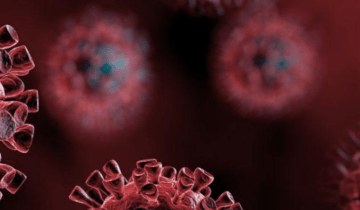“Alopecia” is a blanket term that includes all types of hair loss. Different types of alopecia refer to different hair-loss patterns and causes. Androgenetic alopecia, for instance, is hormone-related hair loss — it’s the typical male-pattern or female-pattern baldness that comes with age and genetics.
Other types of alopecia include:
- Alopecia areata: Hair loss that occurs in patches
- Cicatricial alopecia: Hair loss that occurs in response to inflammation and leads to scar tissue
- Frontal fibrosing alopecia: Receding hairline; common in postmenopausal women
- Traction alopecia: Hair loss caused by physical stress on the hair, such as tight hairstyles, corn rows & braiding
Hair loss can be a problematic condition to deal with, and a lot of people want to be aware if they are going to experience it later on and how to cope with it. Hair loss can occur for a vast variety of reasons, and it can happen to anyone at any time. Most cases of alopecia are hereditary and age-related, and men are generally more affected than women. However, certain genetic and lifestyle factors can further increase your risk for alopecia.
Family History
Genetics do play a big role in hair loss and whether it will affect you in the future. Although it doesn’t always occur because someone in your family deals with it, you are at a higher risk for hair loss if a family member has this condition.
Pregnancy
Being pregnant or recently being pregnant can put you at risk for hair loss. This is a hormone-related risk factor where the hormonal changes you go through during and/or after pregnancy can cause you to lose hair. Many new moms see noticeable hair loss a few months after having a baby. However, most post-partum hair loss is temporary and will spontaneously normalize. The time to recovery varies. In some people it’s three months, in some people it’s six months, or occasionally, it can last a year.
Prescription Medication
Hair loss is a common side effect of many medications. Most of the time, these drugs only cause temporary hair loss that goes away once you’ve adjusted the dosage to or stopped taking the medicine altogether.
These medications damage the hair follicles themselves, interrupting growth at different stages.
If you’ve recently begun taking a new medication and have noticed hair thinning or loss, talk to your doctor about switching to another medication. They may be able to choose a medicine that doesn’t cause the same side effect.
Medical Conditions
Hair loss often occurs in patients suffering or recovering from a medical condition or illness. Amongst a growing list of issues and concerns, hair loss can then lead to additional stress and anxiety as the amount of hair loss becomes more prevalent and noticeable to others. Although there are a vast number of health issues that result in hair loss, some of the most common diseases include lupus, diabetes, cancer, thyroid, PCOS among others.
Malnutrition
It is common, although not guaranteed, that those with poor nutrition experience hair loss. Crash dieting, unhealthy foods and nutritionally poor diet can lead to hair loss. Hair loss and malnutrition are often an index of an unseen, severe mental or physical health concern. You should consult with your doctor about your diet to see if poor nutrition may be a risk factor for you.
Whether you are currently noticing thinning hair, or you are recovering from a disease that caused your hair loss, we will design a personalized approach that can help you achieve your hair goals. To learn more, please send us a message or contact us directly at +971509288748 / +9714-3353839.




 No products in the cart.
No products in the cart.